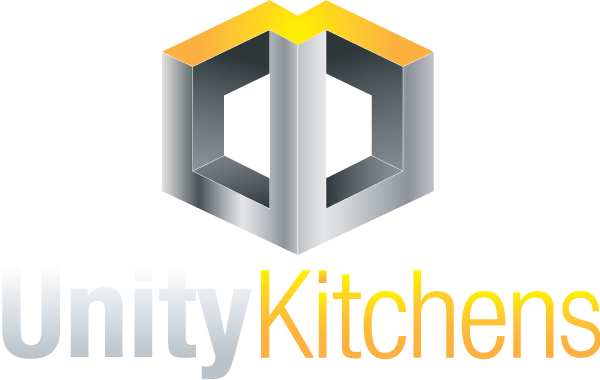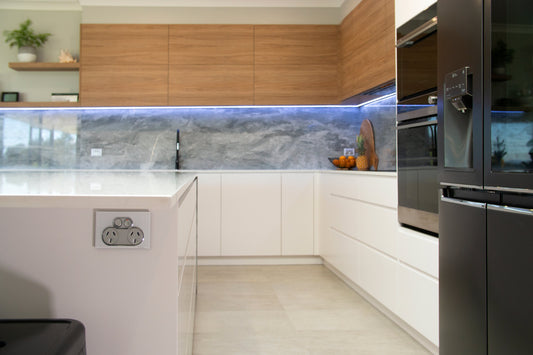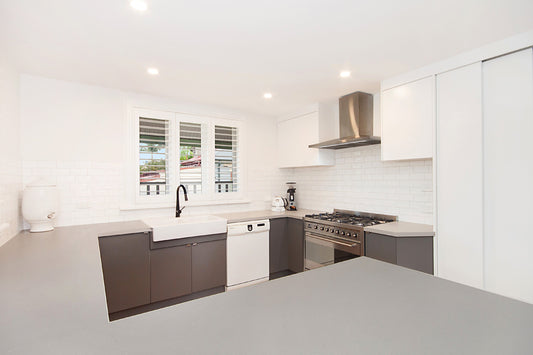One of the biggest frustrations homeowners face when planning a kitchen renovation is the massive differences in pricing. You might get one quote that seems reasonable, another that feels way too high, and a third that leaves you completely confused.
So, why does this happen?
The truth is, not all kitchen renovation companies operate the same way. Some focus on speed, some on sales, and others on flexibility—each of these approaches affects the price. Here’s what’s really going on behind those numbers and how to make sure you’re comparing the right things when making a decision.
1. The Business Model Matters
Every company has a different way of doing business, and that impacts pricing.
High-Pressure Sales Companies
Some companies push hard to close deals, prioritizing sales over actual solutions. These businesses tend to have heavily marked-up pricing, often with big commissions for their sales teams.
What to watch for:
- Pressure to sign on the spot with "one-time offers"
- Unclear details on materials and inclusions
- Overpromising on timelines and costs
High-Volume Sales Companies
These businesses are all about getting jobs done quickly and moving on to the next. They can be cheaper, but speed comes at a cost—usually in flexibility and quality.
Common issues:
- Limited options for customization
- Less attention to detail in design and installation
- Minimal consultation or after-sales support
Low-Overhead or Small-Scale Operators
Some companies keep costs low by working from home, outsourcing most of their work, or skipping structured processes. While this can mean better pricing, it also comes with risks.
Potential downsides:
- Less structured project management, leading to delays
- More reliance on verbal agreements instead of clear contracts
- Limited warranties or follow-up support
Companies with Poor Processes
Then there are companies that simply haven’t invested in proper systems. Everything is done manually, leading to higher labor costs, wasted time, and inconsistent results.
This can result in:
- Unnecessary delays due to poor planning
- Higher pricing to make up for inefficiencies
- A lack of consistency in quality
2. How to Compare Quotes the Right Way
Since businesses operate so differently, comparing kitchen renovation quotes isn’t just about price—it’s about what you’re actually getting.
- Be clear on your renovation goals. Are you after a quick refresh, a mid-range upgrade, or a fully custom kitchen? Knowing this helps you compare the right options.
- Ask for a detailed breakdown. A lump sum doesn’t tell you much. Ask for a clear breakdown of materials, labor, project management, and warranties.
- Think long-term, not just upfront cost. The cheapest quote isn’t always the best value. A poorly designed kitchen or low-quality materials can end up costing more in the long run.
- Look at past projects and reviews. The best way to see if a company is worth the cost is by looking at their work and hearing from real customers.
The Bottom Line
A kitchen renovation is an investment in your home. The goal shouldn’t be to find the lowest price—it should be to find the best value for your budget.
At Unity Kitchens, we focus on transparency, quality, and long-term value. That means no guesswork, no shortcuts—just kitchens built to last.
Got questions? Book a free consultation today.



